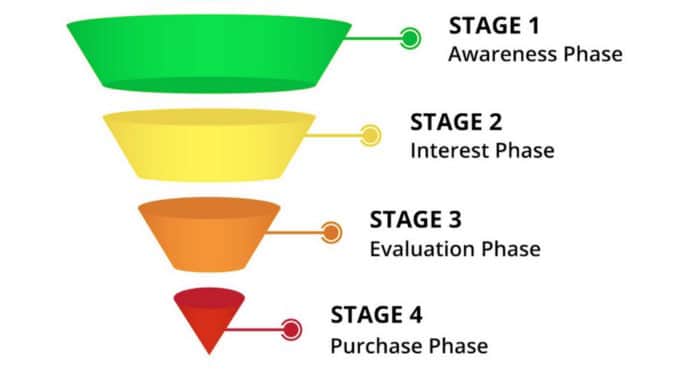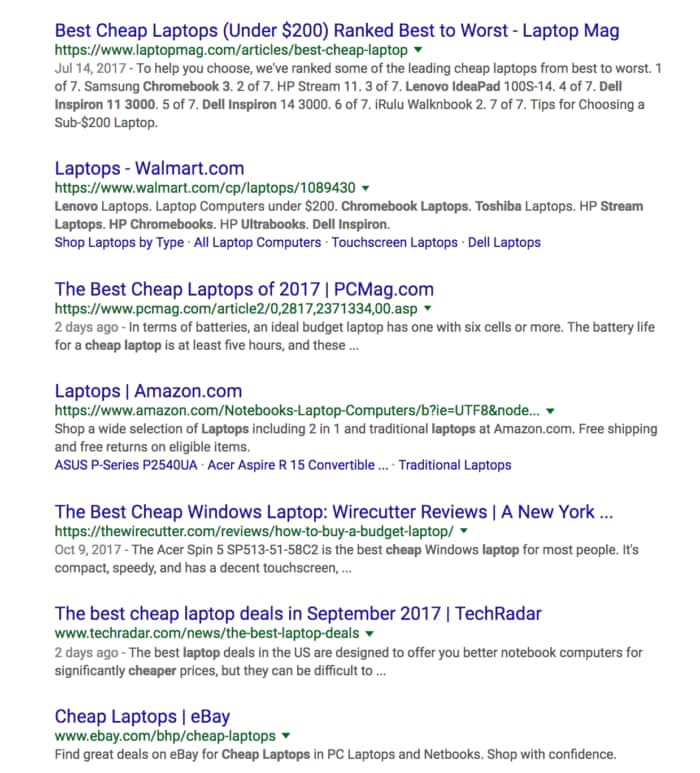© 2017 - 2020 Tech SNA • All Rights Reserved •
Keyword Research Tips for SEO – Everything You MUST Know. Even though Google has hundreds of ranking factors that drive its algorithm, SEO still comes down to one major aspect of it: keywords.
This is the most important thing to keep in mind when it comes to eCommerce on-page SEO.
Finding relevant keywords that bring qualified organic search traffic to your store is one of the most important boxes to check when you conduct your audit.
So I am going to show you how to dodge the common pitfalls of eCommerce keyword research to make sure you are focused on keywords that bring qualified buyers and not tire kicker visitors.
The Four Things Ecommerce Keyword Research Tips for SEO Must Have
Keyword research is an art form in itself and this is especially true when it comes to eCommerce SEO.
Unlike normal keyword research, there are some additional factors you need to consider when selecting keywords to drive organic search traffic to your products.
I am going to show you the best practices of how to find and analyze and optimize keywords in a moment, but for now, let’s take a look at the 4 factors you need to pay attention to when generating keywords for your online store.
#1 – Search Volume
You can target a keyword with the best intent, low competition, and highest relevance, but if no one searches for it, your store and sales won’t benefit from it.
The first factor to consider when doing keyword research is search volume.
In some niches, an average high-traffic keyword has over 10k searches for that keyword per month, whereas in other niches 1k monthly searches are a lot.
Therefore, the best way to determine the best volume for a keyword is to take other high-traffic keywords as a benchmark.
Also, you need to consider the other three factors below before selecting a keyword. It can be tempting to select a keyword with the highest search volume, but that can end up doing more damage than good.
#2 – Intent
A common mistake SEO beginners make is that they try to target the keyword with the most amount of traffic possible.
Not only do they forget that one of the other factors (i.e. competition) makes it difficult to rank for, they also forget that it doesn’t matter how highly you rank or how much traffic you have if it doesn’t convert into sales.
When you optimize a page with a keyword, your goal shouldn’t be to acquire organic search traffic; your goal should be to attract qualified traffic.
Meaning you won’t keywords to drive visitors to your site from the right stage of the sales funnel.
A sales funnel has four steps-

You want to draw the attention of searchers at the early stage of the funnel as well as the people who are at the end.
Generally speaking, the lower stages are smaller because there are fewer people in them.
This isn’t bad at all; it means those fewer people have money ready to spend on your products.
Using Google analytics you can see if you attracted 10,000 people with a 0.5% conversion rate whose average order value is $20, you’d bring $1,000 in revenue.
On the other hand, if you attracted 2,000 visitors that convert at 5% with an average order value of $20, your revenue would go up to $2,000.
Building more traffic does not equal more sales for your business. Only increasing qualified traffic will equal more sales.
That’s the power of targeting keywords with the right intent.
Awareness Keywords
People at the awareness stage of the funnel tend to search websites or a blog for content that explains a problem. They use keywords that include-
- Why
- Reasons
- List of
- What is
- Definition
Interest Keywords
People who already are looking for a solution to their problem, tend to use keywords that include words like-
- How to
- Ways
- Guide (e.g., this article)
- Tutorial
- Product category (i.e., if you sell “diet dog food for bulldogs,” they will search for that particular keyword)
- Brand name
Evaluation of Keywords
Once a user starts to judge different products, they create searches with keywords associated with a selected product, like:
- Comparison
- Price
- Review
- Product features
- Cheap
- Best
- Top 10
Purchase Keywords
Finally, the people at the end of the funnel look for the best place to buy. They want a good offer, that’s why they use keywords like-
- Discount
- Free shipping
- Buy now
- Coupon
- Discount
- Deal
If you optimize the content on your pages for this kind of keywords in each of the stages of the funnel, you will drive users with the right intent to your products.
#3 – Relevance
To acquire the right audience you don’t only need to attract people with the right intent, but you also need to make it relevant to your store’s offerings.
This will increase the site’s conversion rate.
Picking relevant keywords is simply a matter of thinking about what you can offer that matches the given keyword.
Let’s say you worked for Chubbies, the company shown before, and you found the keyword “sports shoes” has over 10k searches per month in the United States.
If you take into consideration what they sell, you’d know it wouldn’t make sense to optimize their pages for that keyword as they don’t sell sports shoes.
The same logic should apply to your own store.
Only optimize your pages for keywords that are relevant to your products.
I have found it’s super useful to look at the top 10 results for a keyword. This step takes longer, but it’s worth it!
If the pages that rank in the top 10 organic positions are similar to yours, then you have a good chance to make the first page in the rankings.
Even better, if there are lots of adverts – it’s probably very profitable. That’s two birds with one stone and informs your entire strategy.
#4 – Competition
Keyword competition can be defined as the average authority a given page should have to achieve a top position in the rankings for a particular keyword.
You must pick keywords for which you can realistically rank.
Let’s say you wanted to position for the keyword “cheap laptops.” If you take a look at Google’s results, you will see this:

To rank for that keyword, you’d need to compete with companies like Amazon, eBay, and Walmart. As you know, these big brands have a level of authority you likely can’t compete against – yet.
So it’s better to attack the longer tail, lower competition search keywords first.
We hope this post helped you to find out the Keyword Research Tips for SEO – Everything You MUST Know.
We love to hear your comments on this article. Please feel free to leave any comments here.
If you liked this article, then please share to Social Media Site. You can also find us on Facebook, Twitter, and Instagram.
Thanks for reading this article.

